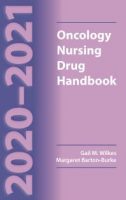 A new nursing eBook has been added to the Library collection, entitled the 2020-2021 Oncology Nursing Drug Handbook. This text, specifically for nurses caring for patients with cancer, details drug therapy in terms of the nursing process: nursing diagnoses, etiologies of toxicities, and key points for nursing assessment, intervention, and evaluation.
A new nursing eBook has been added to the Library collection, entitled the 2020-2021 Oncology Nursing Drug Handbook. This text, specifically for nurses caring for patients with cancer, details drug therapy in terms of the nursing process: nursing diagnoses, etiologies of toxicities, and key points for nursing assessment, intervention, and evaluation.
Major topics and information include effective symptom management, patient education, chemotherapy administration, cellular communication pathways disrupted by cancer, immunotherapy, new drugs and their indications, and updated indications and side effects for recently FDA approved drugs.
 The
The  bioinformatics and cheminformatics database combines detailed drug (i.e. chemical, pharmacological and pharmaceutical) data with comprehensive drug target (i.e. sequence, structure, and pathway) information.
bioinformatics and cheminformatics database combines detailed drug (i.e. chemical, pharmacological and pharmaceutical) data with comprehensive drug target (i.e. sequence, structure, and pathway) information.